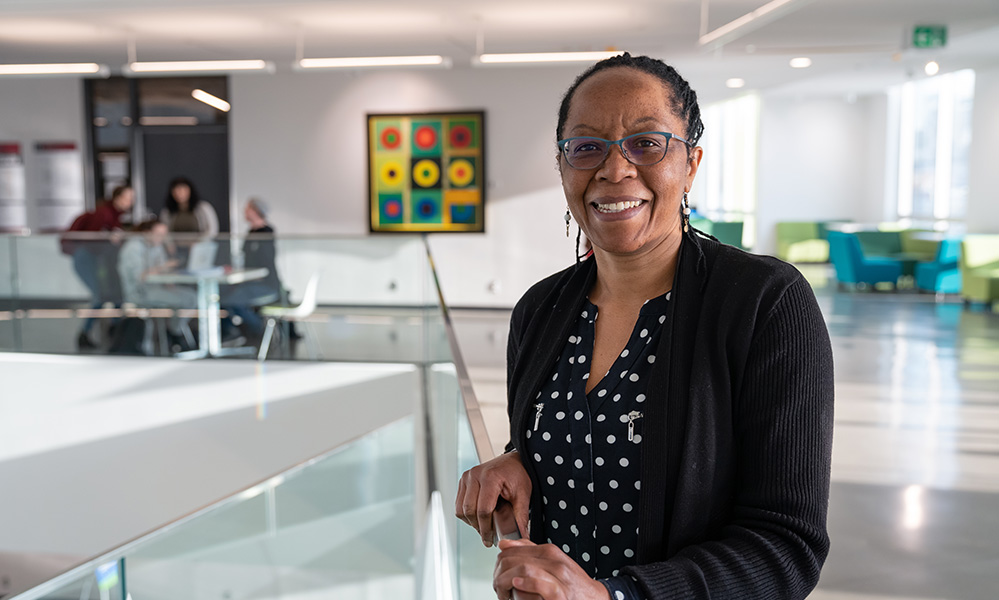As community services began shifting online in March 2020, Dr. Hellen Gateri’s thoughts immediately went to social service providers and how they would deliver services to their clients.
“How would you support a person who doesn't have a place to live? Or who doesn’t have access to technology? Or who can’t speak English?” asked the associate professor in MacEwan University's School of Social Work.
As a social worker who spent 15 years on the front lines in a downtown Toronto community health centre, Dr. Gateri fully appreciated the challenges service providers faced and decided to concentrate her efforts on a research project to identify services that best fit online delivery.
With funding from MacEwan’s Office of Research Services, Dr. Gateri enlisted the help of two MacEwan social work students to reach out to social services and immigrant/settlement services throughout Edmonton. They conducted online interviews with 20 service providers, asking them about their experiences working with clients throughout the pandemic.
They found that while moving online meant that some programs experienced benefits and growth – parenting programs, for example, could be offered at different times of day to include the whole family – others didn’t fare as well.
Programs that provide services to marginalized communities, such as those who are not fluent in English, those who did not receive their education in Canada, or those who live in poverty had significant challenges.
“The pandemic has highlighted the failure of the system to serve immigrant community members who experience literacy problems and who may lack Canadian identity documents,” says Dr. Gateri. “Issues with language, trust, confidentiality and technology mean that the virtual platform is not conducive for the services these community members require.”
During the research interviews, service providers spoke about how something as simple as completing an online form – renewing an application for permanent residency or applying for emergency benefits – becomes incredibly difficult when clients do not speak or read English. And that is assuming that the client has the technology and Internet service to access the form online in the first place.
“When all services moved online, there was that expectation that everyone has the same access to technology, and not just the technology device itself, but also access to the Internet,” says Dr. Gateri. “The reality is that there are many people who might not have that access – it’s an issue of equity and poverty.”
As a result, the service providers in Gateri’s study reported acting as intermediaries between the people they were serving and the system. In addition to assisting their clients with gaining equitable access to services, they also often found themselves filling the role of technology support. And as the pandemic progressed, providers also reported seeing an increase of clients experiencing domestic violence, substance misuse and mental health challenges due to isolation and tensions in families.
“Discussing and addressing those issues virtually online was difficult in terms of maintaining confidentiality with clients,” says Dr. Gateri.
These are just a few examples of how moving online resulted in many service providers finding themselves overwhelmed and overworked, she adds.
“This research teaches us more about the role social workers play as front-line advocates for social justice when working with marginalized populations,” says Dr. Gateri. “Despite the many challenges with service delivery presented by the pandemic, social workers have continued to provide essential services to individuals, families and communities while advocating for more funding to meet their clients’ needs.”
Dr. Gateri is gathering her findings into a report to be shared with the community members and organizations that participated in this research, presented at conferences and submitted to academic journals.
 Media Experts Guide
Media Experts Guide
